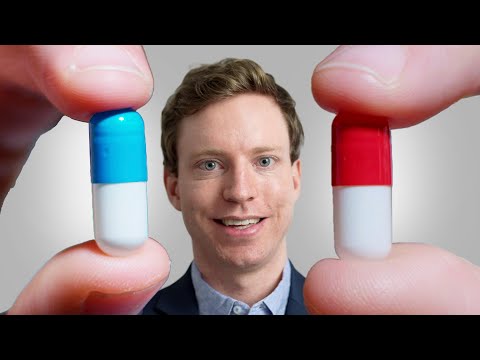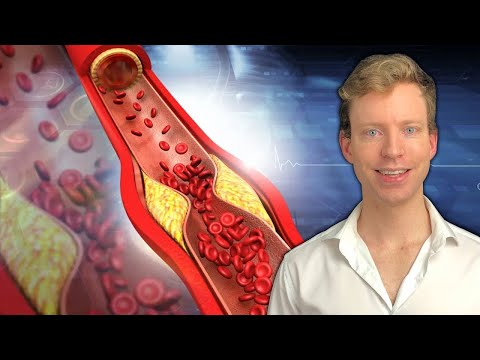I get the feeling you don’t like statins.
" Statins inhibit the synthesis of vitamin K2." So, add some K2 to your supplements.
You can find opposition to all things.
There are some who still believe that the earth is flat.
“we present a perspective that statins may be causative in coronary artery calcification and can function as mitochondrial toxins that impair muscle function in the heart and blood vessels through the depletion of coenzyme Q10 and ‘heme A’, and thereby ATP generation.”
No, study, no proof, just “perspective”, which means the same thing as opinion.
They have had 8 years to prove this “perspective”. Where is the proof?
The honest move would be to just say “I don’t like statins”, and stop trying to find justifications for that belief. As the opinion came before the evidence. I’ve been there so I know what it’s like…
Plato’s cave.

FWIW
The Point of Contact for the above paper is Harumi Okuyama
Nagoya City University and Institute for Consumer Science and Human Life, Kinjo Gakuin University,
2-1723 Omori, Moriyama, Nagoya 463-8521, Japan
Correspondence;
okuyamah@kinjo-u.ac.jp
If you would like more information/clarification contact him and ask.
You do not like the inconvenient truth.
“Truth will always be truth, regardless of lack of understanding, disbelief or ignorance.”
~ W. Clement Stone
“There is only one truth: cardiovascular disease is caused by tiny Martians in our blood vessels. Quote me on this.”
Benjamin Franklin - Athens (US), 2500 BC
It is not liking or disliking statins but understanding that statins are not a magic pill that will make ASCVD disappear. That statins also come with dangers on its own and that in reality absolute risk reduction in all trials is marginal. Taking statins also increases other atherogenic factors and even if they are doing good job at reducing LDL-C (apoB) but its benefits are offset by raising e.g. blood sugar or Lp(a) and oxidized phospholipids.
Would I take statins if my relative risk would be high? Absolutely yes! But with absolute and relative low risk it makes no sense if any benefit would be diminished in the long run. Getting LDL-C (apoB) in low ranges with lifestyle and possibly a supplement (niacin, fiber… maybe bergamot…) sure.
And having a reasonable doubt in pharma industry that operates for profit and not for public good is far more sensible than trusting the one that profit from sales of any medicine.
Dr. Eric Berg Gets Fact-Checked By Medical Doctor - YouTube
Cardiovascular diseases make up half of all deaths and are primarily caused by the apoB family. Statins and other medication have been proven to lower “bad” cholesterol and decrease all cause mortality. Niacin and other “natural” supplements (except fiber), on the other hand, haven’t.
≈ 0.8% (absolute all cause mortality risk reduction)
That equals a relative 34% reduction in all cause mortality in the studies. So your chance of dying any given year decreases by 1/3 and that is just with relatively short term studies.
From what I remember relative all risk mortality reduction on statins is around 10% (and around 25% for MI).
But let’s take my example, I am 48 and my lifetime cardiovascular risk up to age 99 is around 33%, but if I take statins for next 51 years and hopefully they don’t cause diabetes, demetia etc. and I reduce my LDL to about 40-50 mg/dl (don’t think statins would reduce it that much but for the sake of this argument I am keeping it that low) my lifetime reduction for CVD would be 29.9%, does statin prevention make sense? IMO no way.
But let’s take my friend, who is 30, his lifetime risk is 64% and just introducing statins to normalize his lipids would decrease his risk to 35%. Hell yes!
For this example I used QRISK.
There’s zero proof they cause dementia (if anything they may be neuroprotective) and increased insulin resistance is a rare side effect. If you’re that worried about it, you shouldn’t even be thinking about using rapamycin.
my lifetime reduction for CVD would be 29.9%, does statin prevention make sense?
It would be 29.9% if you started in your late 60s or 70s. As I said before, the studies done on statins are not decade spanning so the benefit may even be greater over 30-40 years.
Statins have been heavily used for well over 30 years. It’s hard to imagine there are unknown risks still hiding in the bushes.
You can always find studies from rogue doctors who build their career on skepticism on for example LDL or statins. If you search for the authors on pubmed, they are publishing together often on similar type of papers, @rivasp12 citing one such paper a few hours ago in another thread.
Yes, statins stimulate calcification. What they are not saying is that calcification is the body’s way of building a “scab” for lack of a better word over the unstable soft plaque beneath it. It’s the rupture of that unstable plaque that causes a heart attack. Calcification in the arteries is seen a bad thing purely because it is indicative of the presence of plaque. So the idea that statins may stimulate calcification isn’t actually a bad thing because that matrix may be the support that the arterial wall needs to keep from rupturing.
Plaque stabilization also makes lifestyle/supplements NOT a replacement of medications for those that are indicated them by their cardiologist.
They are in use because they work for certain type of patient that has high LDL-C (apoB) and is at high risk for ASCVD. If you are at hight risk of getting MI it makes more than enough sense to take them.
But there is also discrepancy in all statin studies between the reduction in LDL-C and reduction in mortality which don’t correlate. Simple or more complex logic tells you that it is plausible beyond reasonable doubt even if they do reduce LDL-C they introduce some unknown factor(s) that offset benefit of reduced LDL-C (and there are studies that give an insight into this mechanisms and are not done only by rouge doctors… even “blogger” Peter Attia states that in certain groups of patients there need to be caution with statins). And I am not at all denying that LDL-C is causal in ASCVD. Of course you can argue that damage is cumulative and that if you start intervention too late there is only so much you can do, but also saying that taking statins for primary prevention of ASCVD in low risk individuals would reduce their risk to zero as @AnUser would like often make us believe is based on data is in fact highly speculative. I am not against people using it off label in that sense, I am just saying that in my case ATM statins don’t make sense as a primary prevention. And I am just showing that if someone would like to go down that route that there are some factors and risks to consider. Up until now I picked up some definite points that I would recommend someone wanting to use satins for primary prevention to consider carefully:
- if you are APOE4 carrier watch your desmosterol levels and maybe consider PCSK9 inhibitors
- if you are predisposed or pre-diabetic watch sugar closely and again consider PCSK9 inhibitors or add metformin
- watch your Lp(a) carefully while on statins (again if elevated consider PCSK9 inhibitors or add niacin)
My risk is low and I can spare some time to see where further research may lead the ASCVD and consider later if I would do any other intervention besides lifestyle. There are some new drugs coming, some already available but without enough data ATM.
Why do you think it’s highly speculative?
Other’s more qualified than yourself, have a different view.
And people even smarter than those three Chinese scientists prove that there is no such association between statin use and risk of dementia.
Sex and Race Differences in the Association Between Statin Use and the Incidence of Alzheimer Disease - PMC (nih.gov)
Do statins impair cognition? A systematic review and meta-analysis of randomized controlled trials - PubMed (nih.gov)

